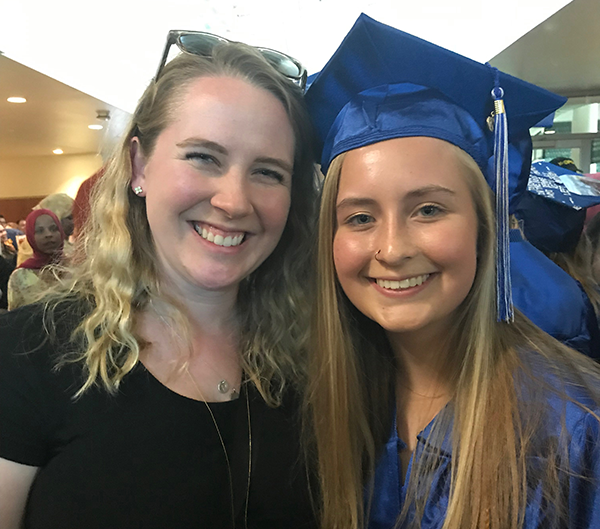Embedded Career Coaches Change the College Application Game

Some people might not willingly return to high school, but for the five NWTC embedded career coaches, high school hallways and buildings act as official office space Monday through Thursday.
The embedded career coach model, which NWTC adopted in 2017, has given high school students new opportunities to access college prep and support.
Instead of the traditional college recruitment model of classroom presentations and information drop-offs, embedded career coaches are physically housed at high schools around northeast Wisconsin to work with students one-on-one. Offering customized support and guidance, career coaches cover everything from career exploration to college and financial aid applications, and even class registration.
The embedded role is important, as many of the students we serve are the first in their families to apply to college—a process that can be daunting and confusing. Embedded career coaches play a key part in guiding students through higher education, especially over summer when school is not in session. We regularly correspond with students over the summer through email, texting and phone calls to make sure they have what they need and know they have our support.
Personally, I enjoy the ability to build relationships with students throughout the school year, getting to know them on an individual level and guiding them through what can be a very intimidating time in their lives. For many students, I am a mentor or advisor. This helps keep our relationship more open and honest and allows me to tackle tough topics such as poor attendance and its relation to academics, as well as the impact it can have on college success. I have also had many tough conversations with students about trying to step away from unhealthy habits inside and outside of school. Although I am usually not the only person having these conversations with them, the student-advisor relationship allows for these dialogues to occur without the discussions coming across as lectures.
Since we work so closely with students, they often feel comfortable disclosing very personal situations, such as pregnancy and homelessness. They know we will connect them with the proper school resources and support services. One of my students struggling with both homelessness and an unhealthy relationship told me I was one of the only people she could trust. She felt comfortable talking about her situation with me. These kinds of scenarios are certainly challenging, but with the help of our K-12 partners in the schools, we can get students the proper support they need.
As tough as this role can be, my fellow coaches would agree this provides rewarding experiences. The depth of relationships we cultivate with students is something that not only benefits them, but also enriches us. I have learned more about different cultures, family structures and today’s trends—although many of my students would say I am hilariously “uncool.”
For me, in the end, this all culminates in attending the high school graduation ceremony. Seeing the students I have worked with so closely cross the stage and move into their next stage of life is more gratifying than any award or recognition. It is the reason I go back into the high school hallways every day.